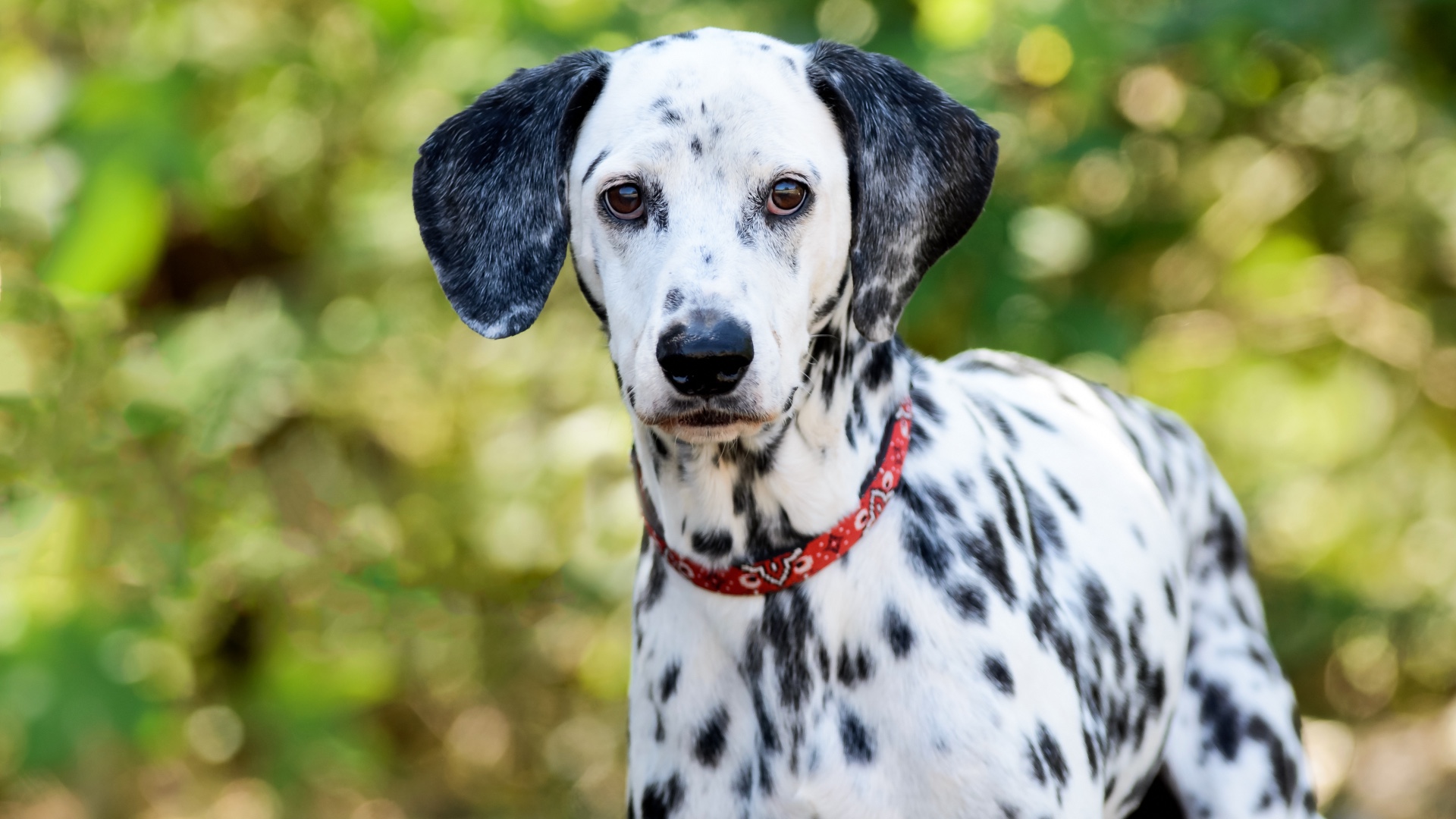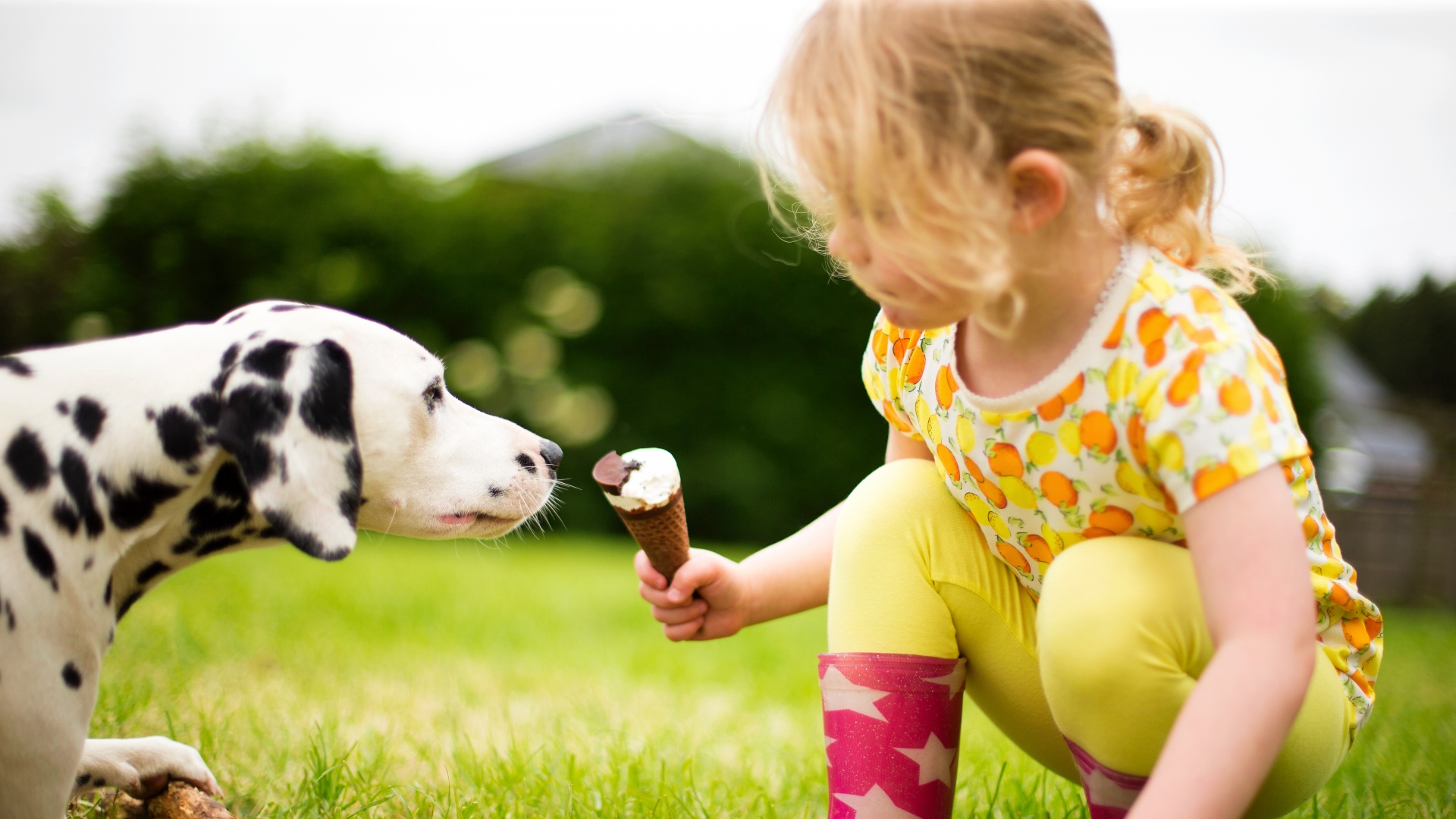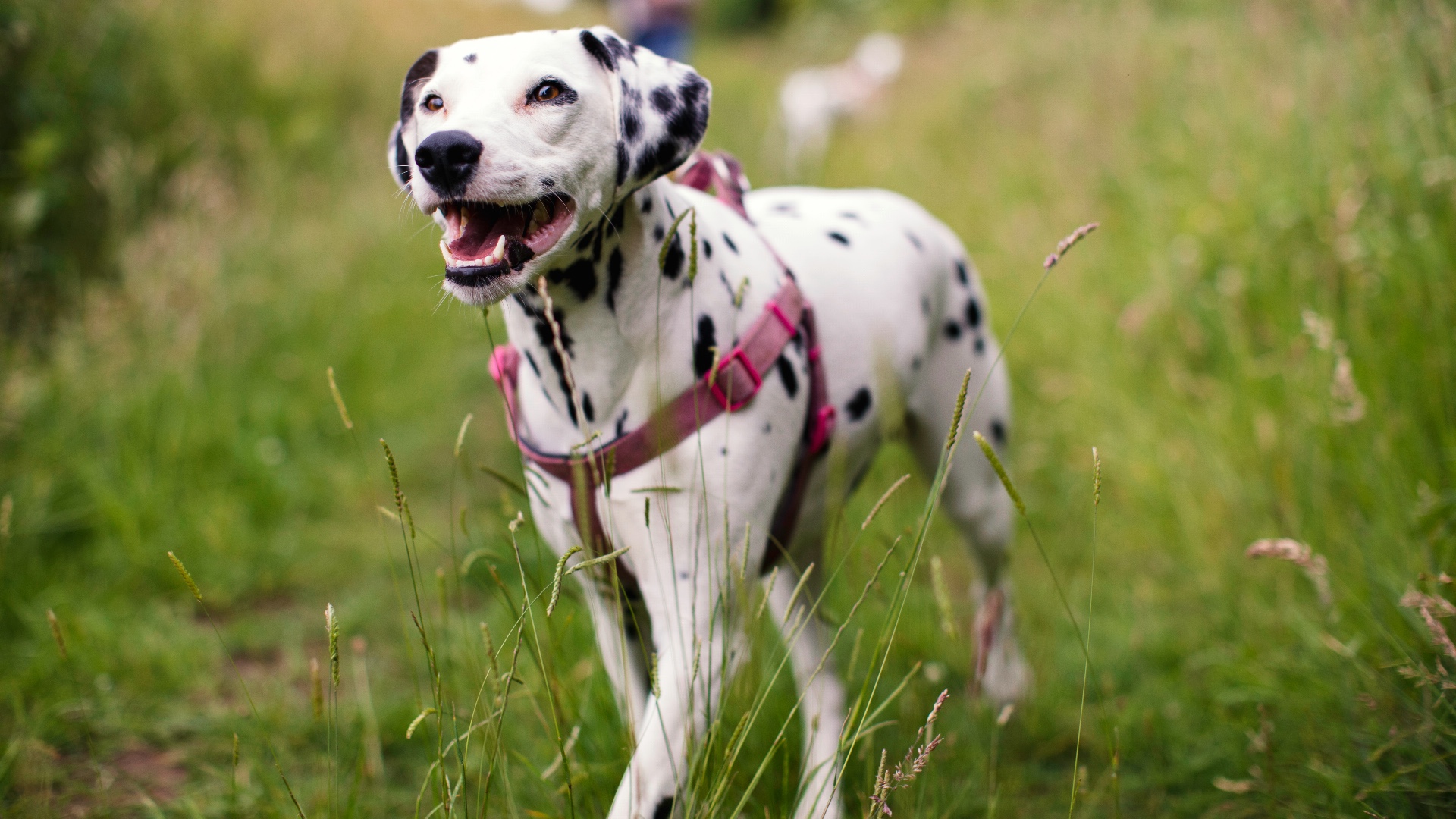Dalmatian: Breed profile
High in energy, playful, and super intelligent, the Dalmatian is the perfect companion for anyone who leads an active lifestyle

Get the best advice, tips and top tech for your beloved Pets
You are now subscribed
Your newsletter sign-up was successful
Ahhh, the Dalmatian. You're very likely to be familiar with this breed thanks to those amazing spotty pooches from Disney's 101 Dalmatians. But although they are one of the friendliest dog breeds around, you shouldn't base your buying decisions on the films or indeed Dodie Smith's novel.
Too many people in the past have done just that and it inevitably leads to Dalmatians being abandoned in animal shelters. The truth is Dalmatians are one of the more high-maintenance dog breeds, which means they aren't the easiest of dogs to live with. You'll need to be able to commit to lavishing them with lots of attention and taking them for lengthy walks.
If you're energetic, though, and keen to take one of these lovely dogs home, then you will be richly rewarded. Dalmatians are remarkable dogs capable of learning to do just about anything which is why they've been used in sport and as retrievers and trail hounds.
But what of those spots? They are, of course, a Dalmatians' most eye-catching feature but it may surprise you to learn they don't develop until the breed is four-weeks-old. After that point, the black marks appear everywhere, even inside their mouth. Let's take a good look at what makes them tick.
How much exercise does a Dalmatian need?
Life expectancy: 10 - 13 years
Average weight: Male: 71lbs/32kg Female: 53lbs/24kg
About the same as: a 10-year-old child
It's a simple question with an equally simple answer: lots. And lots. And lots. There's just no getting around the fact that this highly energetic breed needs to be on the go and the recommendation is that you allow them at least two hours of exercise each day, split into a couple of sessions.
There's a historic reason why Dalmatians are one of the most athletic dog breeds. They were originally bred in England in the 18th century as carriage dogs which meant they were expected to run great distances and at some speed alongside horse-drawn coaches.
Their main role was to protect the carriage's wealthy passengers or merchants from being attacked by highwaymen but although there is no contemporary need for this, Dalmatians still need such high levels of physical exercise to keep them in good shape. They'll more than happily run alongside you as you jog or cycle and you'll also be able to have heaps of playtime fun.
Get the best advice, tips and top tech for your beloved Pets
Dalmations will certainly respond well to agility training and they adore a game of frisbee – jumping allows them to exercise their muscles and it's a great way to keep their mind stimulated. The breed is certainly worth considering if you live by the sea because they love to swim. The key is to keep them moving, tiring them to the point where they won't become destructive or bored.
Are Dalmatians easy to train?
Suitable for: Anyone who wants an active dog
Not suitable for: Anyone without the time to exercise
Temperament: Intelligent, Active, Playful
Shedding: High
In general, yes, Dalmations are easy to train. They are a highly intelligent breed and they will soon pick up on what you're asking of them. Yet you will need to be firm, consistent and patient because they're also rather independently-minded.
It's important to start training early, introducing them to distractions, socializing them with other animals and people, and teaching them how to walk well on a lead without wanting to pull. Some owners would suggest investing in a whistle during recall training and, if you're going to be out of the house for a few hours each day, train them to cope with your absence too.
Plenty of positive reinforcement using treats and praise will help enormously and don't be afraid of repeating routines a few times so that the Dalmatian realizes they're not going to be getting their own way. Just avoid punishing them – Dalmatians in particular have an excellent memory so they will recall those moments when you've not been nice. And remember to have fun.
Are Dalmatians good with kids?

So long as you socialize them well from a young age, Dalmatians are great with children and this makes them wonderful family pets. That said, you may want to avoid having a Dalmatian around toddlers mainly due to their size, strength and sheer energy.
A family with older kids, however, will have few to no problems: dog and child will more than match each other's enthusiasm and they'll become the very best playmates. Dalmatians also display great loyalty – just be sure they don't become over-protective, though.
What do Dalmatians eat?
As a medium to large energetic breed, you'll be looking at feeding a Dalmatian between 1.5 and two cups of the best dry dog food each day, spread over two meals. Don't give them a diet that's very high in protein but do seek out low purine protein sources such as fish, chicken and turkey to prevent a build up of uric acid crystals. High uric acid levels can lead to bladder stones that may need to be surgically removed. You should always ensure a Dalmatian has plenty of water to hand at all times to help dilute uric acid and allow them to urinate frequently.
Do Dalmatians bark a lot?
Not really. Dalmatians are among the quietest dog breeds and they're even unlikely to make much of a noise when they're startled or see a stranger walking up the path. This means if they do bark, they either want something or are feeling fearful and it's always worth investigating what the problem could be.
One instance that may cause Dalmations to bark is leaving them alone for a long period of time. They can quickly become lonely and destructive in such a circumstance and it is something you must bear in mind.
Are Dalmatians aggressive?

A well-trained, sufficiently exercised Dalmatian will be very friendly towards people and other animals. But that's not to say a Dalmatian can't be aggressive. Consider their past as protective carriage dogs: they wouldn't be much use if they couldn't warn away threats. This has instilled a natural instinct to protect and guard and, while a study found Dalmatians are among the breeds least likely to bite, it's certainly not unknown.
There have been reports over the years of an increase in Dalmatian bites following any release of Disney's 101 Dalmatians movie – a time when the breed tends to become more popular and faddish. Problems generally arise when families struggle with the dog's sheer energy and find the breed may snap. As such, it's always important that people continue to train and socialize their Dalmatians into adulthood.
Do Dalmatians shed a lot?
Amount Of Shedding: High
Easy To Groom: Yes
General Health: Good
Potential For Weight Gain: Low to Moderate
Oh yes! Although they have a short coat (and very little odor), Dalmatians are among the biggest shedders so if you take great pride in your home, then this breed is unlikely to be suitable for you. Shedding occurs all year round with seasonal peaks so you'll need to regularly groom using the best dog brushes – as frequently as every day in some cases. What's perhaps worse from a cleaning perspective is that the hairs aren't that easy to remove from fabric and upholstery. At the very least, invest in the best vacuum cleaners for pet hair.
Wisdom Panel Breed Discovery DNA Kit | Amazon
Not sure exactly what breed your dog is? This kit screens for 365+ breeds – because knowing every detail about your dog helps you understand how best to care for them.
Dalmatian health problems
We have already covered one of the biggest health problems associated with Dalmatians: the potential build up of uric acid crystals. Plenty of water and a good diet can help enormously but there are some health issues that are hereditary.
The main one is deafness – a common problem that is associated with a gene involved in their coloration. Deafness can make training more difficult and maybe even cause the breed to be aggressive. Watch out too for skin allergies and hip dysplasia. Just make sure you have the best pet insurance.
Should I get a Dalmatian?
The answer to this question very much depends on how active you are. Dalmatians are far more suited to families who like to get out and about and if you don't have the time or the energy to commit to daily exercise, then this breed is definitely not for you. But if you don't mind a high maintenance breed, then you'll have a loyal and highly intelligent dog on your hands, one which particularly gets on well with children and will fit perfectly into your family's life.
Want to learn more about this breed? Here are our favorite Dalmatian facts

David Crookes has been a journalist for almost 30 years and he has written for a host of magazines, newspapers, websites and books including the World of Animals Annual, BBC Earth, Live Science, The Independent and Tom’s Guide.
Born in England, he lives with two cats but he’s also keenly interested in the differences between the huge number of dog breeds – in fact, you can read many of his breed guides that he’s written in collaboration with vets here on PetsRadar.
With a lifelong passion for technology, too, he’s always on the lookout for useful devices that will allow people to keep their pets happier and healthier, and provide them more time to spend together.
David has a degree from Durham University, as well as postgraduate diploma in journalism from the University of Central Lancashire.

